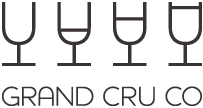UV light box offers hope for vegan wine lovers, says winemaker
A new device that claims to soften tannins in young wine by exposing the juice to ultraviolet light could also help increase the number of wines available for vegans, according to winemakers taking part in early trials. A Swiss company claims to be offering winemakers a new weapon against harsh tannins and underripe wines.
Some winemakers also believe that the firm’s namesake gadget, Vino Flux, could make it easier to produce vegan wines. Vino Flux is trialling its namesake device with 150 Australian wineries, and it claims that its UV light rays will soften tannins and speed up the maturation process.
Exposing wine to ultraviolet light can be detrimental to colour, tannin and ageing potential. But Vino Flux distributor Aldo Bratovic said the Swiss firm had found a way to target red wine tannins by using specific wavelengths in the UV range, without affecting the fruit profile.
Julian Langworthy, winemaker at Deeps Woods Estate in Margaret River and who trialled the new device with Bratovic on Cabernet wines, said that he noticed a clear difference in the treated wines.
‘This technology is exciting for the industry, especially if you need help with wines that have experienced a bad vintage or are from a challenging site,’ Langworthy said.
How Britain could be a major wine producer by 2100
From Pinot Grigio in the Scottish Borders to Tempranillo vineyards in central London, a new study projects that temperature rises linked to climate change will turn the UK into a major wine producer by 2100.
A warmer climate is set to transform Britain from a fringe player on the global wine-making scene to a major producer by the end of the 21st Century, according to a study commissioned by retailer and merchant Laithwaite’s.
An expected rise in temperatures of more than 2 degrees celsius, plus around 5% more rain, means that UK is going to be well placed to produce a whole variety of wine styles.
Pinot Grigio, Riesling and Pinot Noir could even make it as far north as the Scottish Borders. And Essex on the outskirts of London might be producing Malbec – despite its tricky reputation – as well as Syrah and Chardonnay, researchers said.
The study will likely raise a few eyebrows in the wine world.
English sparkling wines have gained respect with several awards in recent years, but the idea of Britain joining the top tier of world wine producers is still one of the best ways to raise a smile in the wine-making villages of southern France.
Pesticide protesters raise pressure in Bordeaux
Campaigners in the Bordeaux wine region have staged what they say will be the first of several actions to highlight the purported risks of pesticide use for vineyard workers and locals. Protesters in the Médoc on Bordeaux‘s Left Bank planted a series of un-marked white crosses last weekend and erected placards warning of the risks of pesticide-related illness.
Marie-Lys Bibeyran, of protest group ‘Médoc Pesticides Collective’, addressed vineyard workers directly in a statement. ‘We are here for you,’ she said. ‘You should not have to choose between health and work.’
Pesticides have re-emerged as a hot topic in some parts of the wine world in 2016. That is especially true in the Bordeaux area, which was the focus of a provocative French television documentary earlier this year. The Aquitaine region of south-west France, which encompasses Bordeaux, is the largest user of pesticides in the country.
Bordeaux winemakers say that they have been pro-active on the issue. In July 2016, the Bordeaux wine council, CIVB, launched a new strategy to combat pesticide risks in association with local authorities.
They said that winemakers would re-double efforts to cut pesticide use as quickly as possible, within the French governmnent’s national plan for cutting pesticide use. That plan, known as Ecophyto, envisages a 25% cut in pesticide use by 2020 – versus 2008 levels – and a further 25% cut by 2025. The original target set by the government – a 50% reduction by 2018 – will not be met.
The CIVB also wants all wineries to achieve sustainable certification. Earlier this year, it said that 45% of estates were certified as sustainable.
Cheers!




